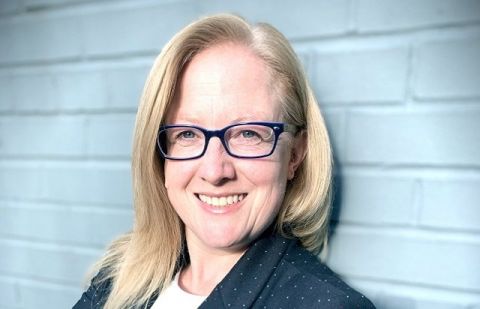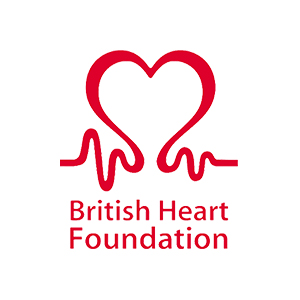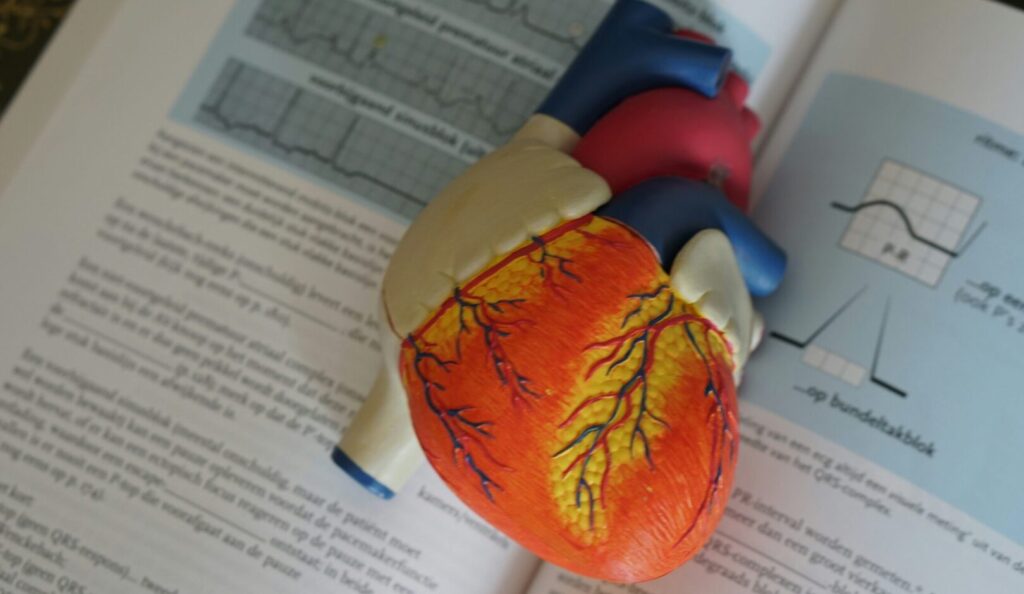- English
- DEUTSCH
- SPANISH
- FRENCH




She has a lifelong passion for improving human health and has spent her career finding ways to deliver positive impact for patients and their families.
We sat down with Charmaine to discuss her role at the BHF, how the organisation responded to the challenges of the pandemic and what advice she’d give to the leaders of the future.

Day-to-day my job is incredibly diverse, but at its heart it’s about ensuring we have clear direction and ambition to make a life-saving difference to people with heart and circulatory diseases.
I love the job because of the talented and passionate people I get to work with and the impact I see we make on people’s lives every day. We back the world’s best scientists to carry out cutting-edge research and develop incredibly innovative programmes of work. Having trained a scientist, I have always been passionate about the power of research to save and improve lives.
The BHF is also very important to me on a personal level. My family have felt the devastation of losing loved ones to heart attacks, strokes and vascular dementia, so it’s inspiring to lead a team that is making breakthroughs to help people like my own family.
The BHF turned 60 in 2020, and there is no doubt the pandemic is the biggest challenge we have ever faced. But I’m immensely proud of how our BHF family responded.
Just one month after I returned to the BHF, and one week before lockdown, we set four simple priorities that guided us at every turn. To be there for people with heart and circulatory disease, to protect our research activities in any way we could, to protect funding for our charitable work, and support our people through the pandemic. Although we couldn’t have imagined what was to come, this focus really led us through.
Today we know we’ve supported over 10 million people who’ve turned to our Coronavirus Hub for information. We flexed to allow our researchers and colleagues to return to the NHS front line. And, at breath-taking speed, alongside the National Institute of Health research (NIHR), we set up flagship research programmes that have helped better understand why people with heart and circulatory diseases are at higher risk from COVID-19.
Our supporters, volunteers and colleagues have also done an incredible job to power our recovery since we reopened our 700 shops and restarted many of our much loved fundraising events in April 2021.
All of their work has helped us not only protect our £440 million of current research commitments, but also keep our door open for new funding. This has been critical in supporting the UK’s pipeline of talented cardiovascular scientists and maintaining progress towards life-saving discoveries.
I’ve also been inspired by the extent of collaboration across the research and health sectors, and hope we get to bottle that spirit for the future.



With the backing of our Trustees, I was determined to protect our transformational Big Beat Challenge Award through the pandemic storm of uncertainty. This is a single £30 million global research award – the biggest we’ve ever given – that aims to make a transformative leap forward in an area of heart and circulatory disease research. We’ve shortlisted four truly ground-breaking projects, and hope to announce the winner later in 2022.
Personally, I am fascinated by the potential of data to transform prevention, diagnosis and treatment of diseases. The speed that the field is moving is inspirational, and I love seeing the approach our BHF Data Science Centre is taking. I am also particularly interested in the genetics of disease, and how we can leverage genetic tools to make a transformational difference for people. I’m so curious to see where research into both these areas will take us.
I started my career as a neuroscientist at University College London, and then had the privilege of working at the Welcome Trust before leaving the lab to join the BHF.
Over more than a decade, and in a number of roles, I learnt so much from around our organisation before joining the Executive team in 2012. During this time the BHF underwent a phenomenal period of growth, which means we today have 4000 colleagues and 20000 volunteers. I can only hope that I gave as much as I got from it.
I left to join the world-leading Institute of Cancer Research as Chief Operating Officer in 2015, and it was a privilege to support a community of incredible scientists, and help progress The London Cancer Hub, Centre for Cancer Drug Discovery, and also to be a Governor at the Royal Marsden NHS Trust.
My decision to return to the BHF in 2020 can be put down to what I call ‘the BHF magic’. It is a world class organisation powered by its collective determination to make a real difference.
The organisation has a fantastic culture, which was truly showcased during the pandemic, combining a huge ‘can-do’ attitude alongside scientific excellence and health expertise.
Whilst we take heart and circulatory disease seriously, the team loves having fun as we work. Some of the times have been tough, some exciting, but it has always been a pleasure to lead a team that has truly risen to meet every challenge.
My advice would be to do what you love. If we’ve learnt one thing from the pandemic it is that life is precious. Make choices to do things you are passionate about, that inspire you, that spark your curiosity – and the rest will fall into place. Energy and passion go hand in hand with excelling in a role.
Another piece of advice would be that having mentors can be incredibly valuable. I have found having people you trust who can really, really challenge you will keep you moving forward and ensure you’re true to yourself.
And finally, get feedback. It can be hard to ask for, and sometimes hard to hear, but there is always something to learn from it. Hearing it with an open mind is so important for growth and for a leader, I would go as far as to say it is essential.
Perrett Laver specialises in executive search to identify outstanding leaders globally. We connect influential organisations with dynamic leaders who share common values and visions for the future.
Our deep understanding of each client’s values and culture ensures we find candidates from diverse sources who bring fresh perspectives and real impact.
We connect influential organisations with dynamic leaders who share common values and visions for the future.Our deep understanding of each client’s values and culture ensures we find candidates from diverse sources who bring fresh perspectives and real impact.